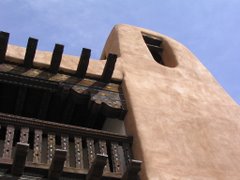And if you are interested in volunteering:
Kids over 15 can volunteer on their own. If they are 13 and up, they need a parent or guardian to come with them. Let me know if anyone is interested and I'll get you the info.
Kristin Madden
Mom3Madden@msn.com
Lots of people call me about injured and orphaned animals each year so I thought I should post Wildlife Rescue's info. If you have an injured raptor, please be very careful about getting it into a box. The feet are often the most dangerous part! And you can contact me directly about those. Also watch your eyes if you find a downed heron or egret.
Our clinic is located next to the Rio Grande Nature Center at the far west end of Candelaria, just west of Rio Grande. We are the first left turn as you enter the gates. We are open from 9-5 seven days a week from May 1 to September 1 and our winter hours are 10-1 Mon-Sat. The website is www.wrinm.org
And we are always looking for volunteers, if you are interested. There are all sorts of ways to volunteer from taking a phone shift to helping with data entry to transporting animals to working in the clinic. The standard minimum age is 13 but we do take a few particularly mature folks at 11 and up. Young people under 15 need to have an adult accompany them at least the first few times. Sorry but raptor handling is limited to people 18 yrs and older.
Kristin
Here is some info from our website:
Exotic & Domestic Placement
A little reminder, WRINM mission is dedicated to "wildlife" patients. These are native animals protected by state and federal law. Many people confuse the meaning of "wildlife" and "exotic". There is also a third option - a "domestic" animal. That generally means any breed of animal that is unable to survive in the wild. These are animals that have been "domesticated" through a process of artificial selection. A process that can take hundreds of years. If they are living outside the care of people they are called "feral". So as a rule...WILDLIFE RESCUE IS NOT A RESOURCE FOR DOMESTIC ANIMALS - like house rabbits, domestic ducks (over 2lbs, Mallards smaller than 2lbs are wild and protected), chickens, dogs, cats, domestic pet doves, goats, hamsters, guinea pigs, Vietnamese pot-belly pigs, etc.
Okay, back to "wildlife" and "exotic". Wildlife is defined as any animal indigenous (Native; not imported) to your continent. As we are in the North American continent. Wildlife is any animal native to North America. These are, for the most part, protected by state and federal law. An exotic animal is any animal not native to North America or animals from a different continent. So as a rule...WILDLIFE RESCUE DOES NOT DEAL WITH EXOTIC ANIMALS - like parakeets, ferrets, most parrots, primates, iguanas, peacocks, Guinea fowl, etc.
Now that we got that out of the way! Our volunteers and public do occasionally, misidentify an animal. When this happens and as there are very few resources that focus on birds we make every effort to find homes for these animals and are in touch with other organizations that specialize.
Exotic & Domestic Placement Finders
Injured or Orphaned Birds
Put it in a cardboard box with a lid - Immediately!
It is very important to tape the lid shut.
Not A Cage - complete darkness is essential. Do not poke holes in the box. The bird can breath just fine as enough oxygen will come through the seams.
Do Not Put Food and Water in the box. More than likely the animal is in shock and will need proper care before food and water can be offered. Place the box in a dark, warm, quiet place. The animal can remain this way for several hours, even over night. Do not leave the animal in your vehicle during Spring and Summer months. They will overheat and die. Call us at: (505) 344-2500
Listen to the phone options very carefully and follow the instructions.
If you choose to leave a message:
1. Describe the animal
2. Where you found the animal
3. If possible, describe the injury
4. If possible, how it occurred
5. Date, time, your name and phone number
A WRINM representative will be in contact with you as soon as possible to instruct you on where to transport the animal.
Small Mammals
Please use extreme caution when approaching and securing the animal. Always protect yourself with heavy duty leather gloves. Follow the instructions listed for birds, with one exception. Use a secure container like a cage, kennel, or heavy duty box. Do not forget to tape the lid shut. Drape your kennel or cage with a towel or sheet to provide a stress-free dark place.
Reptiles
Please use extreme caution when approaching the animal. If you have no experience differentiating venomous reptiles
Large Mammals
Contact New Mexico Department of Game and Fish at (505) 841-8881.
Wildlife Rescue Clinic
No time to call? Transport the animal to the
Wildlife Rescue Clinic
Winter Clinic Hours:
Monday - Saturday: 10 AM to 1 PM
Sunday: Closed
September to April
Summer Clinic Hours:
7 days a week: 9:00 AM to 4:00 PM
May to August

No comments:
Post a Comment